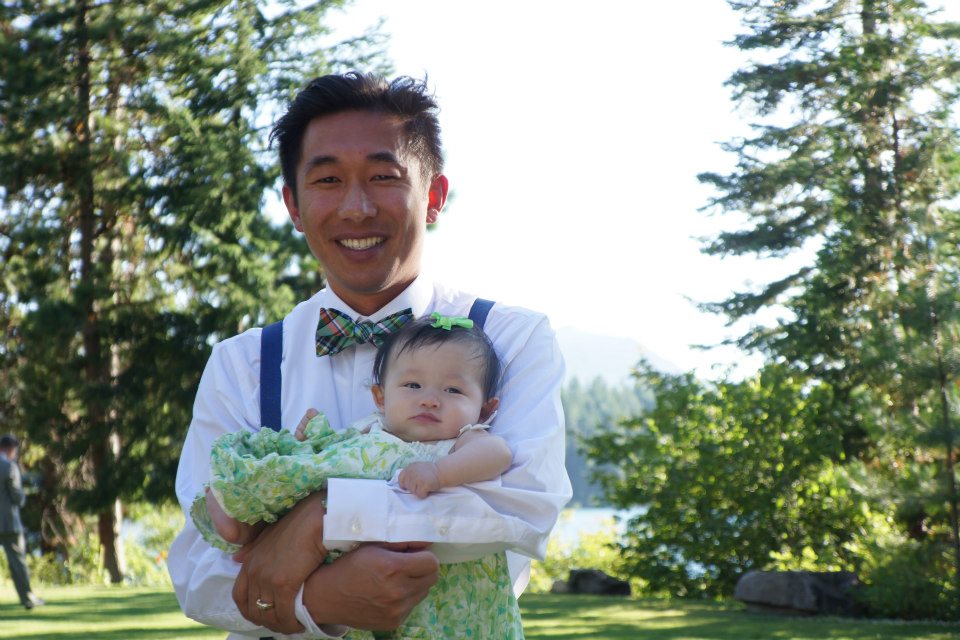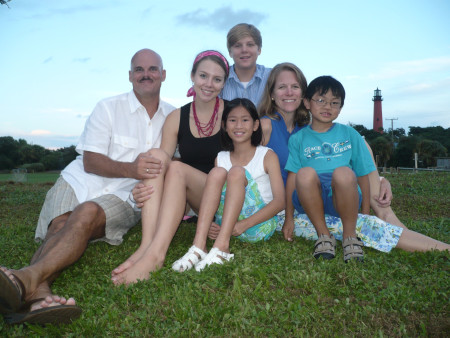We continue our series on the birth parent voice with the perspective of Vietnamese birth parents. Thoa Bui, Holt’s senior executive for programs in South & SE Asia, has been with Holt since 1998. Thoa started working for Holt in Vietnam as a social worker. During that time, she worked alongside local partners to provide counseling, support and permanency planning for orphaned, abandoned and vulnerable children. Below, Thoa shares her experience of working with expectant mothers who considered adoption for their child.
What kind of support and counseling does Holt Vietnam staff provide birth parents before, during and after the delivery of their baby?
Holt Vietnam and its partner provide services to single women who are experiencing an unplanned pregnancy. These services include prenatal and post-natal care and counseling. Usually, these young women do not have family support and the birth father is out of the picture. These women will usually hide their pregnancy from their family since having a child out of wedlock is a social stigma. Usually, the single mother will move out of her community to have her child. Holt Vietnam provides accommodations, medical services and counseling to look at their options. These services are provided in conjunction with the Department of Labor and Social Affairs. Counseling will consist of looking at the option of parenting or adoption and alternative options to help birth mothers become self-reliant. Part of the counseling process is to help birth parents reconnect with their family and inform the family of their pregnancy. About 65 to 70% of birth parents choose to parent with ongoing support from Holt’s programs and family support. Counseling support will continue after the child is born regardless of their decision.
In Vietnam, what are the most common reasons birth parents choose not to parent their child?
The number one reason why a birth mother relinquishes is due to poverty and the social stigma around pregnancy out of wedlock. Currently, Vietnam is slowly changing their attitude on this issue and is more open to single parenting, but it is still difficult for single parents, especially if they do not have family support. Young women 14 years of age and up are most likely to relinquish their child due to lack of support and poverty.
Do birth parents often come back for further counseling after they’ve relinquished their child for adoption? What are the common questions they have when they do?
Yes, most want to know how their child is doing. They ask whether their child is still in Vietnam or placed to the U.S. They want to know that their child is well cared for and they want to know about the family their child was placed with and [that she or he] is well treated. They want to know if the adoptive parents have biological kids and if the adoptive parents treat their adopted child the same. Whether their child is placed domestically or internationally, they want to know if their child will want to see them later in life. Birth parents are not allowed to choose whether their child is adopted domestically or internationally. The priority is to place a child domestically. If this isn’t possible, the child is released for an international adoption. This is regulated by the Vietnamese government.
If the child was adopted internationally, birth mothers wonder whether the adoptive family will return to Vietnam and want to see her. They also want to know what language their child will speak if they should meet again and whether adoptive parents allow correspondence. In some cases, Vietnamese birth parents are open to exchanging letters and photos so they can know that their child is healthy, loved and doing well.
How often do birth parents request updates on their child after relinquishment?
Most birth parents would like to know how their child is doing, are they happy and loved and what do they look like. Birth parents often come back and ask to read reports on how the child is doing. While, typically, birth parents are not requesting updates and photos of the Adoptee every year, they do request periodically throughout their child’s life. If this is possible, Holt encourages any correspondence to go through Holt.
Do other family members participate in the process and inquire about the child once he or she has joined an adoptive family?
Because extended family has a very tight connection and importance, it is not uncommon for extended family members (grandparents, aunts, uncles, etc.) to be part of the counseling process. Families are usually aware of the pregnancy at the time of relinquishment. Part of the counseling process is to help the birth mother inform her family.
What common thoughts and feelings do birth mothers have about their decision?
Birth parents are of course sad and sometimes unsure. It is a very difficult decision and heartbreaking. With counseling and support, most birth mothers feel positive about their decision to relinquish — believing their child will have a better life. They know the decision was best for their child, but they appropriately grieve that they were unable to parent their child.
Besides Holt’s staff, what other resources are available in Vietnam for single or unwed mothers or couples struggling with an unplanned pregnancy?
There are partner agencies Holt works with that can provide support and counseling as well as a religious organization in Vietnam that provide services to young women experiencing an unplanned pregnancy.
How often do birth parents contact Vietnam staff to reconnect with their child once they are adults?
It is birth parents’ constant wish that they may someday see their child again. Birth parents often reconnect with their social worker, asking for any updated information on their child. In most cases, birth parents meet the adoptive parents during a giving and receiving ceremony. In some of these cases, adoptive parents correspond with the birth mother after placement. Birth parents are eager to know how their child is doing. These are adoptions that occurred after the Vietnam Babylift when Holt reopened our program in Vietnam in 1989.
When you notify birth parents that the child they placed for adoption is now searching for them, how do they typically respond?
It depends on the timing and circumstances in their life. They may be married and have not told their husbands. In these cases, it can be a bit more complicated. Birth mothers may be slower in responding and may or may not decide to reconnect with their child if their circumstances prevent them. However, most are usually very happy and eager to see the Adoptee.
How would you describe a typical reunion between birth parents and their (now grown) child?
It is a very emotional process for both the Adoptee and the birth parents. Usually, the birth parents’ family and neighborhood is present during the reunion. All are eager to see the Adoptee. For the birth parents, the Adoptee is still their child no matter how many years have passed. This is why preparation is vital for a successful reunion. It is important for the Adoptee to understand the culture in Vietnam so they are not overwhelmed. The birth family considered the Adoptee a part of their family and with that comes some responsibility to the family. There may be some expectations the birth family may have that may be uncomfortable to the Adoptee. Adoptees need to be prepared for this and given the tools to respond in a way that is expressing their needs while being respectful to the family.
This process is bringing two very different cultures together. Both want to have a positive experience and both will have very different expectations.
There are usually a lot of tears, hugging and questions. It can be a very overwhelming and amazing experience for the Adoptee and the birth family. For the birth mother, she sees the Adoptee as still the little child she once held in her arms. The Adoptee is not a stranger to the birth mother.
What else do you think is important for adoptive parents to know about birth parents?
All Vietnamese birth parents love their child. They made the difficult decision to place their child for adoption because of difficult circumstances — not because they wanted to, but because they saw no other way to provide a better life for their child.
Holt social workers in Vietnam continue to provide quality services to birth parents. They provide a safe environment for young women to make the best choice for their child. Whether the birth parent chooses to parent or make an adoption plan, Holt social workers are there to provide counseling and support.
It’s also important to note that families who adopted from Vietnam can send a letter and photos of their child to the birth mother through Holt. If at the time of placement you made an arrangement with the birth mother agreeing to ongoing contact, then the letter and photos can be forwarded to her. However, if there is no agreement, and the birth mother doesn’t check in with Holt Vietnam, we cannot conduct a search for her. Oregon law governs who can search, and at what age, and applies to all of Holt’s post-adoption services. We are always happy to forward your letter and a few photos to Holt Vietnam; if the birth mother inquires, our local staff can give her any letters that await her in the file. In most cases, we won’t be notified of this contact with the birth mother; the staff in Vietnam simply doesn’t have the resources. If the birth mother wishes to respond to a letter, the staff will translate her letter and send it to us to forward to you. Keeping your contact information up to date with Holt is the best way to ensure contact.



It is amazing that Holt International and its partner agencies help birth parents to get counseling. I have adopted two children from Eastern Europe and I often think about what happened to their mothers before they went to the orphanages. I truly hope that they were able to get the help that they needed, because it must be very difficult to give up a child. Does Holt International also provide counseling resources to the children that they help to get adopted? I think that it is very important for everyone involved in the adoption (child, birth parents, adoptive parents) to get some type of emotional support.
Yes, Holt provides resources to families and adoptees of adoption competent therapist. We also have a director of clinical services that can assist with questions and referrals as well. Please go to our website, http://www.holtinternational.org/pas for more information about our services.